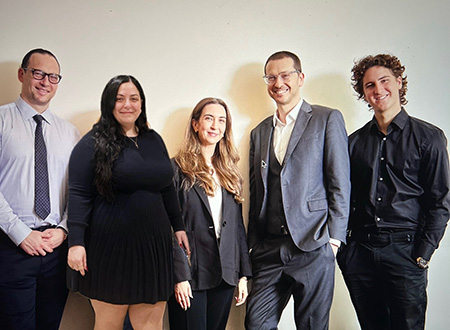Expertise in Family Law matters
Protecting Your Interests. Securing Your Fair Share
Contact We will never share your details with anyone

Separtaion and Divorce
Dividing assets and liabilities after a separation can be complex, both emotionally and financially. A property settlement is not just about the end of a relationship, it’s also a significant financial transaction that involves dividing major assets such as your home, savings, superannuation, and debts.
Some couples are able to reach an amicable agreement on the division of assets and liabilities following separation, while others may require extensive assistance to bring resolution, including court proceedings.
A property settlement takes into consideraton:
- The total value of the asset pool
including real estate, financial resources, superannuation, and liabilities - The financial contributions of each party
(eg income, assets brought into the relationship) - Non-financial contributions of each party
(eg homemaking and caregiving roles) - The future needs of each party
including earning capacity, health, age, and primary caregiving responsibilities.
This legislation is inherently complex, and outcomes often depend on the specific nuances of your relationship.
Parenting Matters
The living arrangements of children need to be organised. This is an emotional area of the law, and needs to be approached in a practical and sensitive way. These can be formalised through parenting plans, consent orders, or court orders.
At Movement Legal, we prioritise resolving matters efficiently and amicably via Consent Orders or financial agreements, aiming to secure the best possible outcome without resorting to litigation whenever possible.
Our Approach
to Family Law

You can’t do this alone.
Our tight-knit group of family lawyers will handle your matter with intensity, thoroughness, and creativity. We manage our client’s legal issues within the larger framework of their strategic and financial goals. We bring careful attention, tested experience, and a high degree of expertise.
We'll make sure you have top family lawyers in your corner - no matter how simple or complicated things get. We're focused on getting you the best outcome. Whether it means going to court or settling smartly, we know how to win.

Ezra Sarajinsky
Principal

George Newhouse
Senior Counsel

Matthew Buckley
Senior Counsel
Values
Outcome Focussed
The process is a means to an end. We want to resolve your case efficiently, and lower the drama.
Transparent Fees
Our fees are transparent, with fixed fees on many services.
Human Touch
We relate to you as a person, and commit to you as a client until your matter is resolved.
Practical solutions
Practical guidance to help you navigate challenges effectively.
Hear from some trusted clients
Rated 5/5 stars
Family Law
FAQs
When can the property settlement commence?
The property settlement process can be commenced once you are separated (even if you remain living in the same house).
You do not need to be divorced.
Which assets get divided?
In Australian family law, property includes all items that were owned or shared by the couple - whether in individual names or joint names. This covers bank balances, property, investment properties, cars, investments, shares, trusts you are part of, gifts or inheritances received, superannuation, loans or credit card debts.
How do we specifically determine who gets what?
Dividing assets is not necessarily done rigidly through a percentage-based allocation for each asset. We will work with you to consider different models of dividing the asset pool.
As needed, negotiations, mediation or using the court system can help to arrive at settlement.
What is a Parenting Plan?
A parenting plan is a written agreement made by the parents about how their children will be cared for.
It can cover living arrangements, school holidays, communication and other aspects of a child's life.
What are consent orders?
Consent orders are legally binding court orders that formalise an agreement between parties regarding parenting or financial matters after separation or divorce, without requiring a court hearing.
What time limitations do I need to be aware of?
There are time limitations around commencing the process - for defacto couples 24 months after separation, and for married couples 12 months after divorce.
Legal Overview:
The 4 Step Property Settlement Process
Assessing Assets and Liabilities
The first step is identifying and valuing all assets and liabilities to determine the property pool for division.
Evaluating Contributions
Financial and non-financial contributions are considered. Negative contributions, such as financial wastage, may also be factored in. This is guided by s79 of the Family Law Act.
Considering Future Needs
What each party needs in the future. Factors such as income, earning capacity, health, and childcare responsibilities are considered to determine what adjustments are needed for fairness. This is largely governed by s75(2) of the Family Law Act.
Achieving a Fair Settlement
The proposed division is given a holistic overview to consider whether a just and equitable division will be in effect, and possibly adjusted based on individual circumstances.
Legal Overview:
Common Services & Resolutions
Consent Orders
Consent Orders are legally binding agreements approved by the Family Court that formalise arrangements for property division or parenting after separation. At Movement Legal, we have extensive experience preparing Consent Orders that are clear, enforceable, and tailored to protect your interests.
Binding Financial Agreements
A Binding Financial Agreement (BFA) is a legally enforceable contract that sets out how assets, finances, and liabilities will be divided. We have deep experience drafting and advising on BFAs to give you clarity, protection, and peace of mind.
Mediation
Mediation is a structured process where separating couples work with a neutral third party to resolve disputes without going to court. We frequently guide clients through mediation - helping you reach fair, practical agreements while saving time and legal costs.
Family Court Proceedings
Family Court proceedings can be legally and procedurally complex, often involving detailed evidence and multiple stages of litigation. We navigate the Court environment with a strategic approach—advocating effectively for our clients while aiming to resolve matters as efficiently and economically as possible.
Take the first step - contact the team today
We start with an obligation free phone call to understand more about your circumstances and how we can resolve your matter.
